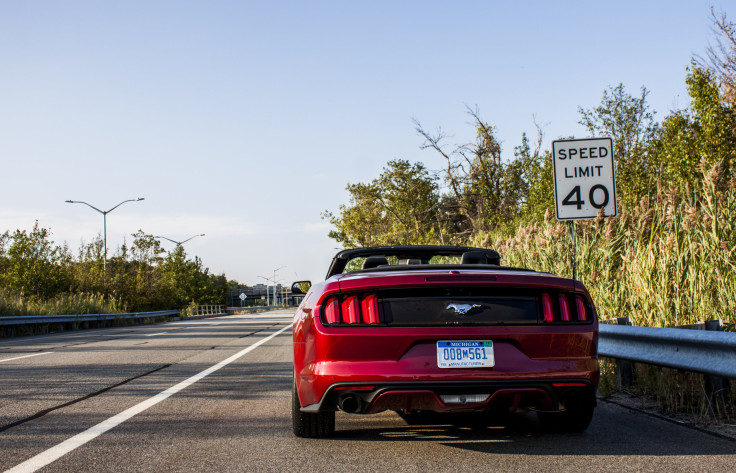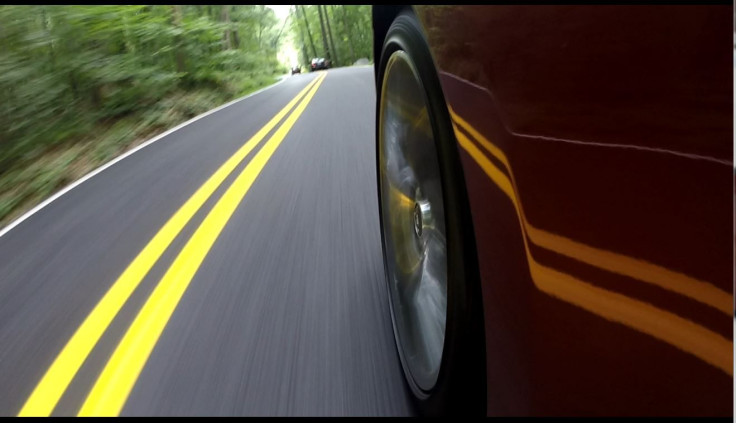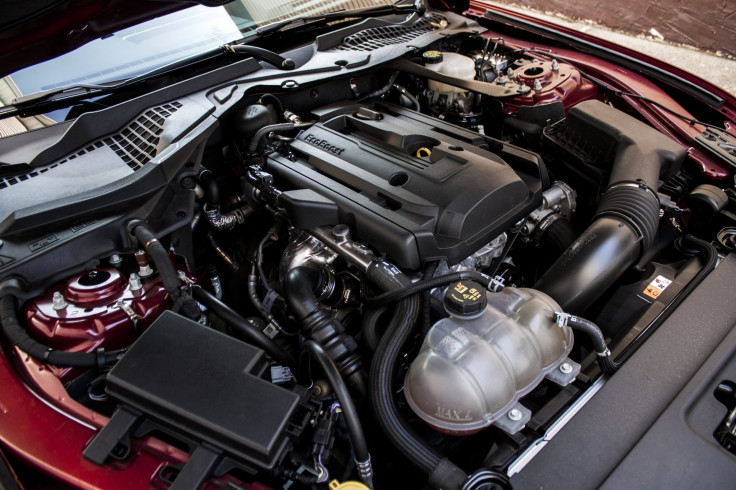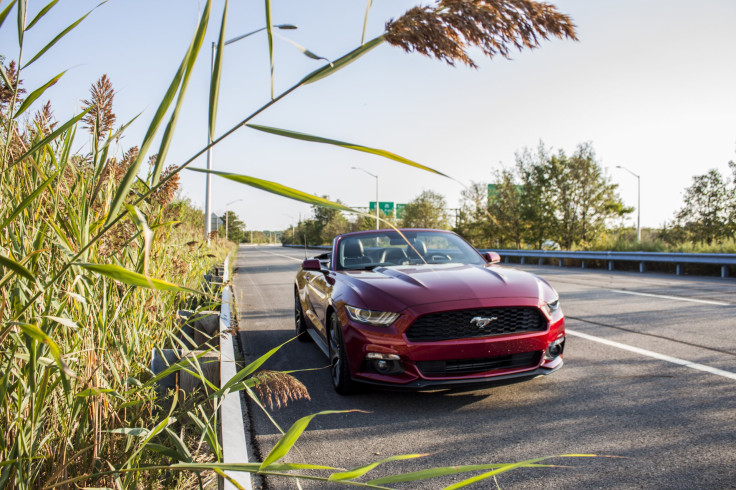Ford Mustang Ecoboost Review: Sorry Haters, This Four-Cylinder Turbo Is The Right Mustang For Most People

The Ford Mustang has always been about big things: big engines, big power, and big noise. The GT I tested was no different, though it was a far more excellent and civilized car than Mustangs of the past. But owning a V8 Mustang will burn a hole in your pocket, and today’s sports cars are downsizing engines -- hence the four cylinder Ecoboost Mustang. It’s often been criticized as “slow” and “blasphemous,” but the truth of the matter is that the Ecoboost is better 90% of the time for 90% of drivers. The Ecoboost Mustang is the sports car on easy mode.
Let’s get the obvious negatives out of the way early, as the comparisons to the GT are inescapable : No, the Ecoboost doesn’t growl like the V8. It doesn’t sound as epic (actually, it’s too quiet, even compared to other turbocharged Fords). Purists will look down on you for buying it. The small, turbocharged motor doesn’t have the immediacy of a large, naturally-aspirated V8. It’s down over 100 horsepower and 80 lbs. of torque to the V8. It will lose in a straight line, without question. The GT is a spectacular car that will thrill and excite you if you’ve got the skills, while the Ecoboost will keep even novices safe.

Are we done? Good.
Before you buy a Mustang or any other rear wheel drive sports car, you should ask yourself something: “How experienced am I?” If the answer to that is “not very” but you’re set on a sports car, you should strongly consider the Ecoboost. It has plenty of power -- 310 horsepower and 320 lbs. of torque to be exact -- anyone who calls the Ecoboost slow just doesn’t know what they’re on about (just a few years ago, the Mustang GT hovered in the low- to mid-5 second range in the sprint to 60 mph). It's usable, easy power. That makes the Ecoboost super predictable and easy to handle, even if you give it full throttle through a corner.

There’s so much grip (our test car had massive 265/35/20 tires) that it’s hard to imagine anyone but the biggest idiot getting into trouble. Even powering out of corners on full boost, the rear of the Mustang squats and grips. There’s a small shimmy, but you don’t even need traction control -- there’s too much mechanical grip for the power to upset the rear. The car still rotates a bit off throttle, but its first inclination is to understeer, especially at the limit. Which is safer for most people. It’s a very forgiving, tame experience, despite the speed.
You’ll appreciate the power level and grip best if you take the Mustang off the highways. Any car with a big engine can go fast in a straight line, but all that power means nothing when you’re on mountain and valley roads if you can’t control it. The Ecoboost held its own, tailing and pulling away from some much lighter and more nimble cars, though its size was an issue on small backroads (that is a problem for all Mustangs, however). Still, it’s hard to imagine that a GT would have been able to easily pull away from the Ecoboost here, even in heavy convertible form. The turbocharged motor was hovering in its 3000 to 5000 rpm sweet spot the entire time, leaving all but the bravest challenger in the dust.
One of the best parts though, is that the Ecoboost will happily settle down and get back to cruising like its big V8 brother. Only it’ll return much better fuel economy while it’s at it. On a 200 mile drive, I managed 30 MPG in the Ecoboost, with the top down, at 80 mph. With the top up, 32 mpg -- which is nearly the same number achieved in the economy-car-based Focus ST. The GT I tested was lucky to ever hit 23 mpg (although to be fair, it did have the Performance Pack’s shorter gear ratios. Even regular GTs only hit 25 mpg at best). Over the entirety of the test period, I averaged 27 mpg.
This is all very enticing. But the Ecoboost Mustang has one big problem: It feels like it’s been held back. To an extent, that’s true -- the 2.3L is capable of producing much more power than stock, but it has to leave space for the GT to sit at the top of the normal lineup. With some simple modifications, aftermarket companies are regularly making 20-50 more horsepower over Ford’s stock numbers. From the factory, it’s a bit too tame and frankly easy to drive. It’s hard to see someone who’s used to quick cars leaving this car stock for long, and as I pushed the car harder and harder, I found myself thinking, “This would probably be really good fun with some suspension work, a tune, and thinner tires. Or a lot less weight.” But again, this is Easy Mode.

As it is, the Ecoboost Mustang is a safe place to start if you’ve never had a sports car before. It’s fast enough, has a ton of grip, is well-built, and can be had relatively cheaply. It’s not going to replace the V8 anytime soon, but who says it needs to? It’s for a different kind of person right now, but the small turbocharged engine could keep the Mustang‘s status as the cheap performance car alive in a world with increasingly stringent emissions and fuel economy regulations.
SPECS
Horsepower: 310 @ 5500 rmp
Torque: 320 @ 3000 rpm
0-60: ~5.5 seconds
MPG: 22 city/31 highway / 25 combined Observed: 21 city / 32 highway / 27 overall
MSRP: $41,565 as tested, but at that price it's worth considering the GT convertible. Look for fastback Ecoboosts around $30,000.
© Copyright IBTimes 2024. All rights reserved.





















